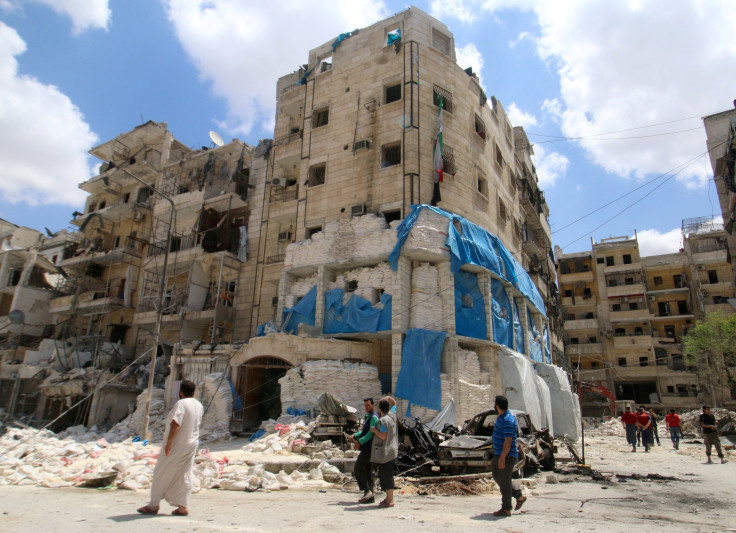Syria Peace Deal Could Soon Apply To Aleppo Fighting

Russia said on Sunday talks were taking place to include Aleppo in a temporary lull in fighting declared by the Syrian army in some western parts of the country, a sign of intensified efforts to halt a surge of violence in its former commercial capital.
The United States said stopping the bloodshed in Aleppo, which has been at the center of an escalation of violence that has all but destroyed a wider ceasefire deal and broke up peace talks in Geneva, was a top priority.
Nearly 10 days of bombardments by both the government side and insurgents in the city of Aleppo has killed more than 250 people, a monitoring group says, confounding hopes of an end to five years of war. The city was calmer on Sunday, a monitoring group said, but rebel shellfire hit one area, and there were government air raids on its outskirts.
Moscow and Washington brokered the Feb. 27 ceasefire deal, which applied to western Syria but excluded al Qaeda and Islamic State fighters. World powers and the United Nations have been trying to salvage that truce.
Syria's army announced late on Friday a "regime of calm", or lull in fighting, which applied to Damascus and some of its outskirts, and parts of northwestern coastal province Latakia; but it excluded Aleppo.
A senior defense ministry official in Moscow, which supports Syrian President Bashar al-Assad, said on Sunday negotiations were taking place to "establish a regime of calm also in Aleppo province", Interfax news agency reported.
The official did not say who was negotiating on Aleppo.
He said the lull in fighting had been extended around Damascus for another 24 hours. In Latakia province, it still applied through Monday without need for an extension. It had been respected in both areas, the Russian official said.
Syria's army confirmed the extension of the lull around Damascus but did not mention Aleppo.
A number of rebel groups late on Saturday rejected the partial "regime of calm" in Damascus and Latakia, saying any truce must include all areas where the government and main opposition were fighting, as under the February deal.
"We will not accept under any circumstances... regional ceasefires," they said, adding they would respond as "one bloc" to attacks in any area of the country.
U.S. Secretary of State John Kerry, who was due to travel to Geneva on Sunday to discuss Syria with his Jordanian and Saudi counterparts and the U.N.'s special envoy, said efforts to revive a cessation of hostilities must include Aleppo.
The state department said Washington wanted Russia to put pressure on its ally Assad to stop "indiscriminate aerial attacks" in Aleppo, Syria's biggest city before the war, and which has long been split between government- and opposition-held areas of control.
Both sides have rained bombardments on residential areas for nearly 10 days, killing more than 250 people including at least 40 children, the Syrian Observatory for Human Rights said.
The British-based monitoring group said it had recorded less fire in the city early on Sunday, but later said insurgent shelling had hit a government-controlled area, with no immediate reports of casualties.
It did not report air strikes in the city, but Syrian or Russian warplanes did strike its northern outskirts. The air raids hit areas along the so-called Castello road, which is the opposition's only way in and out of the city, providing access to its rebel-held approaches.
A resident in a government-held area, speaking to Reuters via internet, said early on Sunday he had heard no bombing since around 9 a.m. (0600 GMT).
A resident living in a rebel-held area said strikes were hitting north of the city. He said shops and businesses were closed because people were still afraid of bombardments, and that there had been days of electricity and water cuts.
Full control of Aleppo would be a huge prize for Assad. Russian military support has helped turn the war Assad's way since September, reversing some gains made by rebels last year.
© Copyright IBTimes 2024. All rights reserved.





















